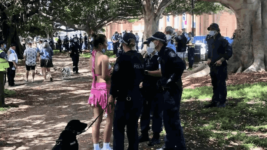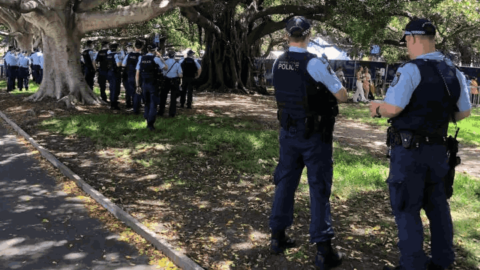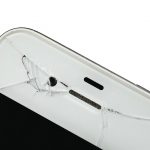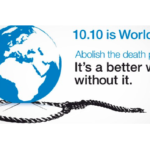Decriminalising Drugs Would Enable Police to Focus on Serious Crime

As anti-drug dog campaign Sniff Off posted an image of NSW police at Central Station in March 2019, it was clear that law enforcement were taking matters to an extreme, as not only were officers accompanied by dogs, but they were further equipped with screens to strip search civilians behind.
Regardless of whether any transport user is carrying illegal drugs, getting a train home should not involve the potential of being ordered to strip down at the station, especially as the dogs get it wrong two-thirds of the time, and if they’re right, it usually involves a small quantity of cannabis.
Over the last decade, the use of both drug dogs and strip searches have become a daily part of life in Sydney and across NSW, as the state continues to ignore the clear evidence that the zero-tolerance war on drugs approach to illicit substances compounds the harms associated with drugs.
Yet, this could all be undone if the state decriminalised drugs. The change would see drug possession no longer being a criminal offence, and thereby end the need for sniffer dogs and strip searches.
Seeing the personal use of drugs as a health issue rather than a criminal law problem would encourage users to get help, with the corresponding positive flow on effects to themselves, those close to them, the economy and indeed society generally; as it has done in nations such as Portugal.
Safe drug use could also be promoted by allowing and even encouraging users to test their drugs through pill testing, potentially protecting them against the dangers of lethal additives.
All of this would also free police resources, allowing law enforcement agents to focus on more serious crimes.
Seen to be acting
The NSW government established the Special Commission of Inquiry into the Drug Ice in late 2018. However, following the delivery of its final report in January 2020, the Liberal Nationals immediately ruled out five recommendations, including ditching the dogs, and then they dragged their feet.
When the Coalition government finally came to the table with its full response to its own inquiry twenty months after the fact, there was still the potential to act on a recommendation to decriminalise drugs, as well as pull back on the use of strip searches.
But instead of deciding to reduce the practice of having civilians remove all their clothing, the report outlined that NSW police had simply improved on how it conducts the procedure, while on the point of drug decriminalisation, the Liberal Nationals responded that it was “not supported”.
Decriminalisation, however, has been shown to reduce the harms that drug prohibition is supposed to eradicate, and it also removes the harms caused by the overpolicing of drugs, and in NSW, this would include the trauma caused by the searches and the imposition of sniffer dogs in public places.
Established in 2001, the Portuguese model of drug decriminalisation is the exemplary example of how this approach to drug use can benefit the whole of society, as it’s reduced drug deaths, HIV infections and the prisoner population, as well as leading to a dip in the use of illicit substances.

New government potential
Last September, when the Perrottet government did finally respond to the inquiry, it allocated close to half a billion dollars for much needed treatment, especially in rural NSW. However, it was a bit like saying to the alcohol and other drug sector, “Take this. You need it. And forget about the rest.”
But meanwhile, down in the ACT, the Labor Greens government had been debating a drug decriminalisation bill and amending it to make improvements, all while the NSW government was buying time on its response, and then Canberra passed drug decriminalisation laws last October.
So, with Labor likely to take out the next NSW election in March and the Greens likely to gain more seats than currently, the stage will be set for a potential repeat of the Canberra reforms, especially as a Minns government would have a precedent set within its own overarching political machine.
And in addition to the benefits brought by ending the criminalisation of people with a health issue, the state would also see an end to the currently overbearing imposition of the NSW Police Force into the social realm.
No longer would general duty officers be terrorising the public with the hopelessly flawed drug dogs and the horrendously invasive strip searches would also fade away, as the use of these measures to hound civil society over recreational drug use would no longer have any bearing.







